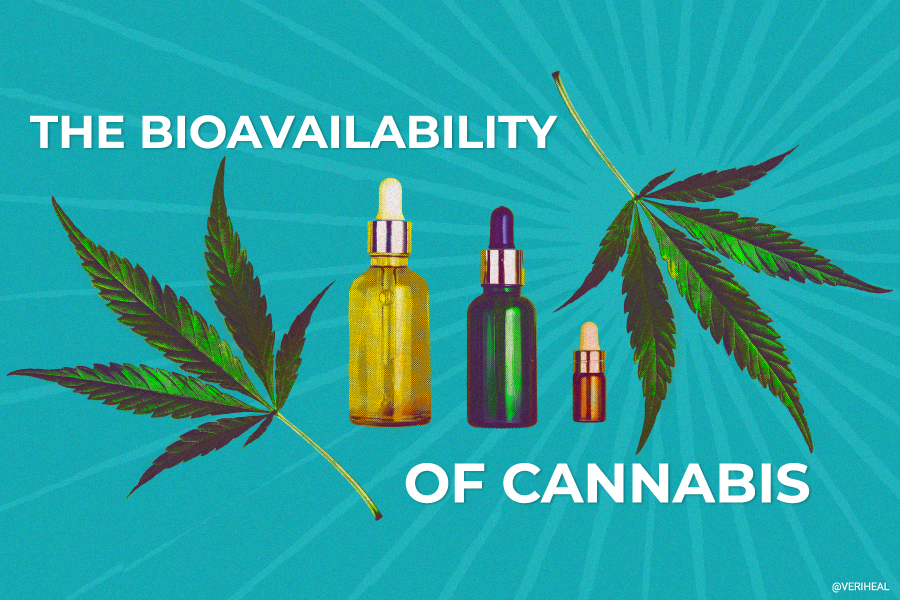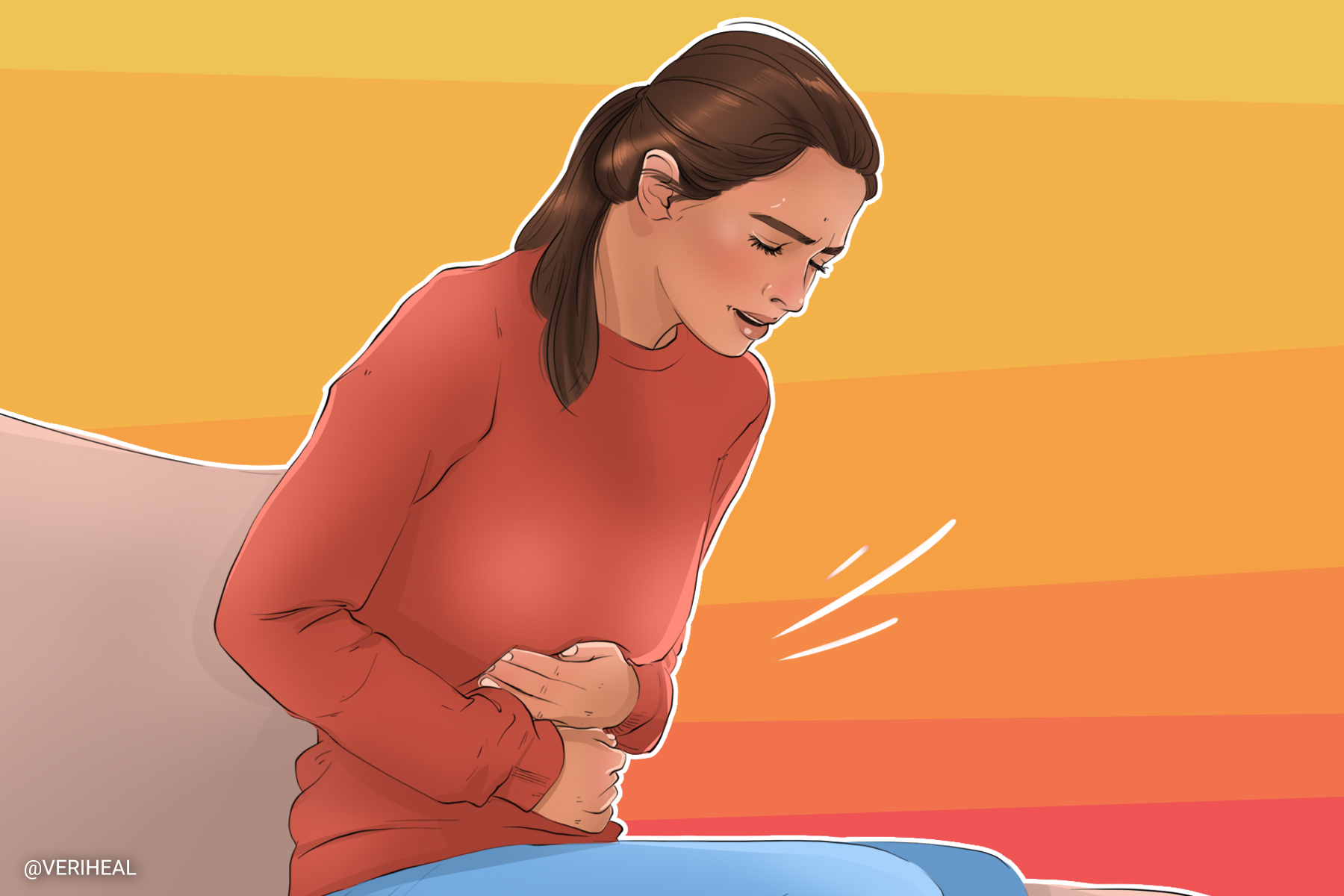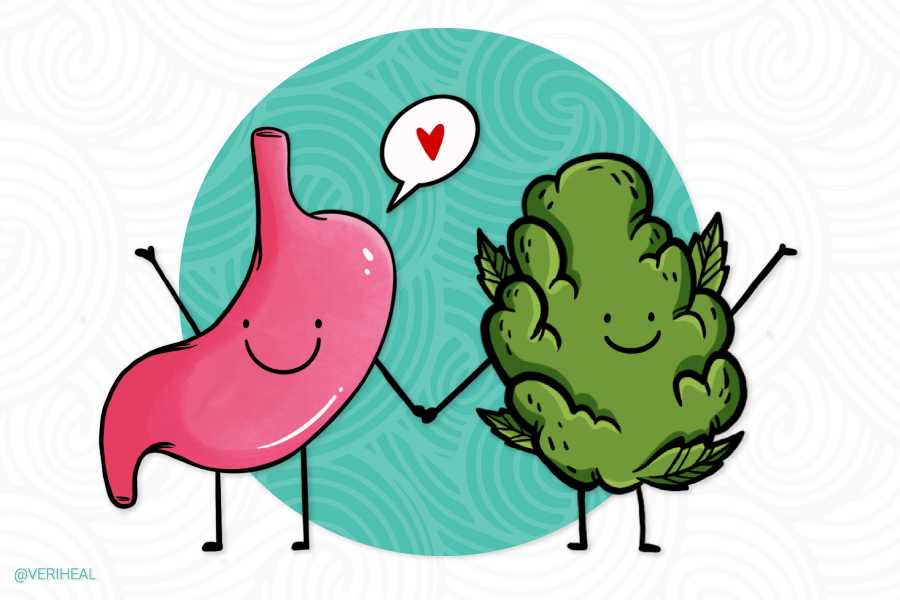Gastritis and Medical Cannabis

What You Need to Know: Medical Cannabis and Gastritis
Cannabis has emerged as a potential treatment for gastritis, a condition characterized by inflammation of the stomach lining. The endocannabinoid system (ECS), which plays a crucial role in regulating various physiological processes, including immune response and inflammation, interacts with cannabinoids found in cannabis. Cannabidiol (CBD) and Δ9-tetrahydrocannabinol (THC) are key compounds in cannabis that exhibit anti-inflammatory and analgesic properties, suggesting a potential therapeutic role in alleviating symptoms associated with gastritis.
Research indicates that cannabis may help reduce inflammation in the stomach lining, providing relief from gastritis symptoms such as abdominal pain, nausea, and discomfort. The ability of cannabinoids to modulate the ECS and influence immune responses suggests a promising avenue for managing gastritis. However, it is important to note that individual responses to cannabis treatment may vary, and more rigorous clinical studies are needed to establish the safety, efficacy, and optimal dosage of cannabis-based therapies for gastritis. Additionally, considerations for potential side effects and legal regulations surrounding cannabis use should be taken into account when exploring it as a treatment option for gastritis.
The Science Behind Medical Cannabis for Gastritis
- Gastritis Signs, Symptoms and Types
- Gastritis Causes and Complications
- Gastritis Treatment: Can Cannabinoids Provide Relief?
- The Role of the Endocannabinoid System in Treating Gastritis
- What Preparations of Cannabis Are Best for Gastritis?
- Talking to Your Doctor About These Types of Treatments
Did you know that 34.7% of the population in developed countries has gastritis? This figure jumps to 50.8% in developing countries (3). Individuals who are diagnosed with this illness will experience pain and discomfort as a result of the stomach lining becoming eroded, irritated, and/or inflamed from a variety of underlying causes.
The name “gastritis” speaks for itself, with “gastr-” being a word to describe the stomach and “-itis” referring to inflammation. A burning inferno of pain tears through the stomachs of gastritis patients and the medical condition can occur either suddenly (acute) or gradually (chronic).
In many instances, gastritis is a lifelong disease and it is unlikely for the patient to become spontaneously healed. Gastritis and duodenitis cost the country’s healthcare system more than $1 billion every single year (6).
The good news is that several treatment options may help to diminish the symptoms. One example is cannabis which, according to a study published in the journal of Alcoholism, Clinical and Experimental Research, may help alcohol abusers to reduce their risk of developing alcoholic gastritis (2). Early published research also offers similar promising results.
Gastritis Signs, Symptoms and Types
Generally, gastritis is classified as either ‘Type A’, ‘Type B’, or ‘Type C’. It happens after the stomach lining (mucosa) becomes damaged or weakened by chemical or infectious irritants, including alcohol, bile, and non-steroidal anti-inflammatory drugs (NSAIDs). It may also occur after eating spicy food or with an H. Pylori infection.
What are the Main Gastritis Symptoms?
Not everyone who is diagnosed with gastritis will experience gastritis symptoms. However, the most frequently reported symptoms to include:
- Abdominal pain and/or bloating
- Black, tarry stools
- Burning feeling deep inside the stomach after eating/during the nighttime
- Hiccups
- Indigestion
- Loss of appetite
- Nausea
- Stomach acid
- Stomach pain
- Vomiting
If you experience symptoms like these visit to your doctor as soon as possible to prevent further complications and detect serious causes.
How is Gastritis Diagnosed?
Before you can consider your treatment options, you must first consult with a doctor about your symptoms and medical history, as well as any specific medicines you might already be taking. When you visit your doctor, expect to undergo a physical examination.
Depending on the results of the exam, your doctor may ask you to undergo one of the following types of tests:
- Upper GI endoscopy – An upper GI endoscopy is a minimally invasive procedure that allows a doctor to examine small pieces of tissue from your stomach lining under a microscope to diagnose and figure out the possible cause(s) of gastritis or gastropathy. This procedure involves the use of an endoscope, which is a flexible tube fitted with a special camera. During an endoscopy, the doctor will inspect your upper GI tract, which includes your duodenum, esophagus, and stomach.
- Blood Tests – Doctors may also carry out blood tests. This method is pretty straightforward and involves a needle to prick your skin, before drawing a blood sample using an attached syringe. This sample will then be sent to a lab and you will be informed of the results at a later date.
- Stool Tests – Stomach bacteria, such as H. pylori infection, is a common cause of gastritis. Infections of this kind can be detected with a stool test, which can also be used to check bloody, black, or tarry stools (major signs of bleeding in the stomach).
- Urea Breath Test – When testing for H. pylori infection in the digestive system, doctors may conduct a rapid diagnostic procedure known as a ‘urea breath test.’
- Upper GI Series – To get a closer look at your upper GI tract, doctors may also take a standard series of fluoroscopic X-rays.
Gastritis Causes and Complications
Poor eating, drinking, and lifestyle habits and/or the use of specific medications, including anti-inflammatory drugs, can trigger the onset of gastritis. Two prime examples are stress and excessive alcohol consumption. Additionally, if you suffer from chronic vomiting, bile reflux, or Helicobacter pylori (H. pylori), you may be at a higher risk of developing gastritis.
When left untreated, gastritis can cause erosion of the gut lining, nausea and vomiting, severe blood loss and diarrhea. In advanced cases, acute gastritis and chronic gastritis can increase the risk of developing peptic ulcers and stomach and colorectal cancer. Often fatal—11,090 deaths are predicted to happen this year alone—gastric cancer is sometimes treatable with chemotherapy, chemoradiation, radiation therapy, and targeted therapy (8). Colorectal cancer is even more prevalent and estimated to cause over 50,000 deaths in 2022 alone. Fortunately, it can be detected and treated early with routine monitoring and prevention strategies (8).
Gastritis Treatment: Can Cannabinoids Provide Relief?
Antacids are usually the first medicine of choice for people who suffer from acute gastritis. Alka-Seltzer, Maalox, Mylanta, Rolaids, and Riopan are some common over the counter antacids, which are designed to neutralize the acid in your stomach and relieve heartburn/indigestion.
Typically, OTC brands will blend aluminum, magnesium, and calcium with bicarbonate ions or hydroxide to produce antacids. Despite the efficacy of chewable or liquid antacids, the unwanted side effects often leave people struggling to pass stools or, on the other end of the spectrum, glued to the toilet with a bad case of diarrhea!
The most commonly prescribed antacids, however, are medications like H2 receptor blockers such as famotidine and ranitidine, and especially PPIs (proton pump inhibitors) like omeprazole and pantoprazole. These work to effectively reduce the natural acid production in the stomach and decrease the symptoms of gastritis and its complications. Your doctor or GI specialist will most likely recommend these.
Fortunately, there is a light at the end of the tunnel for people who’ve exhausted alternative treatment options: cannabis use. Although more studies are set to take place, some doctors are encouraged by the existing scope of research that suggests marijuana use may possess properties to relax the muscles, reduce pain, relieve inflammation, enhance nerve-muscle coordination, ease spasms, and prevent/reduce nausea and vomiting (antiemetic).
Synthetic and natural cannabinoids can activate cannabinoid receptors in the ECS to reduce gastrointestinal fluid secretion and gut inflammation in animal and human cell in-vitro models (4, 5). Specifically, cannabis use in the form of CBD oil may potentially ease inflammation and other symptoms in the gut, however this is yet to be definitively proven in any clinical studies. Anecdotally, however, cannabis has been reported by patients to help to ease the symptoms of irritable bowel syndrome (IBS), irritable bowel disease (IBD), and other types of digestive disorders such as abdominal pain, appetite, nausea, vomiting, diarrhea, cramps, and overall quality of life (7).
The Role of the Endocannabinoid System in Treating Gastritis
Cannabis gets to work by communicating with cannabinoid receptors in the digestive tract. Cannabinoid receptors make up part of the endocannabinoid System (ECS), which is responsible for maintaining homeostasis. Some studies have demonstrated cannabis’ neuromodulatory capability in controlling the functioning of the gastrointestinal system.
While it might be one of the most expressed systems in the human body, the ECS is one of the least studied. Among its many functions, the ECS majorly influences the regulation of the gastrointestinal tract. Cannabis is heavily involved in regulating food digestion and since food is fuel for the body and mind, the potential of using cannabis for gastritis cannot be ignored.
A group of scientists fronted by Israeli researcher Raphael Mechoulam first discovered the existence of the ECS in the mammalian GI system back in the year 1995 when the endocannabinoid 2-arachidonoylglycerol (2-AG) was isolated in the canine intestine (6).
CB1 receptors can be found pretty much everywhere in the brain, lungs, liver, and kidneys. They have also been widely discovered in the colon and stomach, with the majority found on the intestinal wall’s lining cells, A.K.A. “the epithelial cells”.
Even more interesting is the fact that CB1 receptors are present in neurons that control the GI system’s primary functions. Conversely, CB2 receptors are found in the Enteric Nervous System, but most are found on the immune cells in the GI tract.
While CB2 receptors are well-known to modulate inflammation, CB1 receptors may also play a positive role. There are certain compounds different from CBD and THC that can change the way CB1 receptors work and increase gastroprotection from things like NSAID-caused gastritis (9).
Recent research has also found that recreational cannabis use is associated with a decrease in the risk of developing an H. pylori infection (1).
Over time, accumulated research has shown the ECS is “a key modulator of gastrointestinal physiology, influencing satiety, emesis, immune function, mucosal integrity, motility, secretion, and visceral sensation (6).” Cannabinoids may also play a key role in the health and function of gut microorganisms, which may in turn improve human health although a definitive link has not been found.
What Preparations of Cannabis are Best for Gastritis?
Since gastritis occurs deep within the belly, it’s not possible to apply a topical gel or lotion to relieve the symptoms. Instead, for fast-acting relief, you may consider inhaling your cannabis in the form of a vape or smokable dry flower. Expect the effects of cannabis to reach their peak within 30 minutes and last for up to six hours with this administration method.
Another type of cannabis administration that is recommended for gastritis patients is ingesting edibles, tinctures, and/or infused drinks. When ingesting cannabis, the effects of THC (tetrahydrocannabinol), CBD (cannabidiol), and other cannabinoids can be felt within 30 minutes to two hours. Expect the effects of cannabis to linger for 5-8 hours with this method of administration.
Today there is not enough research in order to recommend one form of cannabis over the other for the symptoms of gastritis, and it has not been shown to treat, mitigate, or prevent gastritis or its underlying causes or complications.
Talking to Your Doctor About These Types of Treatments
If your doctor has reason to believe that you have gastritis, you will likely be referred to a gastroenterologist (a doctor who specializes in digestive disorders.) They should be able to conduct the necessary tests to assess your health status, as well as point you in the right direction in regards to a specific type of treatment that will best suit your lifestyle and the severity of your symptoms.
With a growing body of scientific research highlighting the remedial qualities of smoking weed for gastritis patients, it’s not surprising that more people are turning to the plant as a therapeutic aid for gastrointestinal problems. Consulting with a doctor before using cannabis-based treatments is vital, especially if you are already using a specific type of medication that might react synergistically when consumed alongside cannabis.
As long as you reside in a state that has medical cannabis-friendly laws, you can organize a face-to-face consultation with a licensed healthcare practitioner or doctor who is certified to recommend cannabis treatments.
Complementary Gastritis Treatments Worth Discussing with Your Doctor
Getting your health back on track after a gastritis diagnosis requires some serious lifestyle changes. If you’re a regular user of alcohol, your doctor will advise you to quit or at the very least, reduce your intake. Some other substances that should be avoided include coffee, citrus fruits and juices, acidic foods, NSAIDs, and certain other drugs.
There are a handful of complementary treatments that can ease the symptoms of gastritis, including yoga, Tai Chi, meditation, and stress-busting breathing techniques.
Chinese herbal decoction (CHD) has also been tried and tested in the treatment of atrophic gastritis (AG). This herbal-medicine technique involves boiling herbal or plant material, including bark, roots, and stems, to extract essential chemicals.
Finding out if you qualify to receive medical cannabis for gastritis is the first step toward finding a solution. Not sure where to begin? Let the Veriheal team guide you!
Our network features doctors who have been licensed to recommend medical cannabis in their respective states. After consulting with one of our cannabis coaches, you’ll be even better informed about how to take cannabis and access to the top marijuana dispensaries.
Get in touch today to find out if you qualify.
Note: The content on this page is for informational purposes only and is not intended to be professional medical advice. Do not attempt to self-diagnose or prescribe treatment based on the information provided. Always consult a physician before making any decision on the treatment of a medical condition.
1. Adejumo, A. C., Labonte, P., & Bukong, T. N. (2021). Relationship between recreational cannabis use and helicobacter pylori infection. Cannabis and Cannabinoid Research. https://www.liebertpub.com/doi/10.1089/can.2021.0139
2. Adejumo, A. C., Li, J., Akanbi, O., Adejumo, K. L., & Bukong, T. N. (2018). Reduced prevalence of alcoholic gastritis in hospitalized individuals who consume cannabis. Alcoholism: Clinical and Experimental Research. https://pubmed.ncbi.nlm.nih.gov/30536396/
3. Feyisa, Z. T., & Woldeamanuel, B. T. (2021). Prevalence and associated risk factors of gastritis among patients visiting Saint Paul Hospital Millennium Medical College, Addis Ababa, Ethiopia. PLOS ONE, 16(2). https://www.ncbi.nlm.nih.gov/pmc/articles/PMC7872234/#:~:text=Globally%2C%2050.8%25%20of%20the%20populations,markedly%20decreased%20in%20developed%20countries
4. Fioramonti, J., & Bueno, L. (2008). Role of cannabinoid receptors in the control of gastrointestinal motility and perception. Expert Review of Gastroenterology & Hepatology, 2(3), 385–397. https://www.researchgate.net/publication/23653293_Role_of_cannabinoid_receptors_in_the_control_of_gastrointestinal_motility_and_perception
5. Lee, Y., Jo, J., Chung, H. Y., Pothoulakis, C., & Im, E. (2016). Endocannabinoids in the gastrointestinal tract. American Journal of Physiology-Gastrointestinal and Liver Physiology, 311(4). https://journals.physiology.org/doi/full/10.1152/ajpgi.00294.2015
6. Peery, A. F., Crockett, S. D., Murphy, C. C., Lund, J. L., Dellon, E. S., Williams, J. L., Jensen, E. T., Shaheen, N. J., Barritt, A. S., Lieber, S. R., Kochar, B., Barnes, E. L., Fan, Y. C., Pate, V., Galanko, J., Baron, T. H., & Sandler, R. S. (2019). Burden and cost of gastrointestinal, liver, and pancreatic diseases in the United States: Update 2018. Gastroenterology, 156(1).https://www.ncbi.nlm.nih.gov/pmc/articles/PMC6689327/
7. Phatak, U. P., Rojas-Velasquez, D., Porto, A., & Pashankar, D. S. (2017). Prevalence and patterns of marijuana use in young adults with inflammatory bowel disease. Journal of Pediatric Gastroenterology & Nutrition, 64(2), 261–264. https://journals.lww.com/jpgn/Fulltext/2017/02000/Prevalence_and_Patterns_of_Marijuana_Use_in_Young.19.aspx
8. Stomach (gastric) cancer key statistics. American Cancer Society. (n.d.). Retrieved August 22, 2022, from https://www.cancer.org/cancer/stomach-cancer/about/key-statistics.html#:~:text=How%20common%20is%20stomach%20cancer,6%2C690%20men%20and%204%2C400%20women
9. Trexler, K. R., Eckard, M. L., & Kinsey, S. G. (2019). CB1 positive allosteric modulation attenuates Δ9-THC withdrawal and NSAID-induced gastric inflammation. Pharmacology Biochemistry and Behavior, 177, 27–33. https://www.ncbi.nlm.nih.gov/pmc/articles/PMC6405226/

















